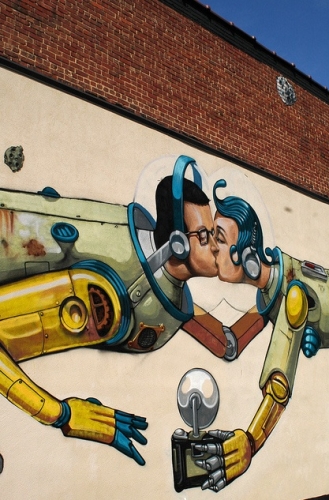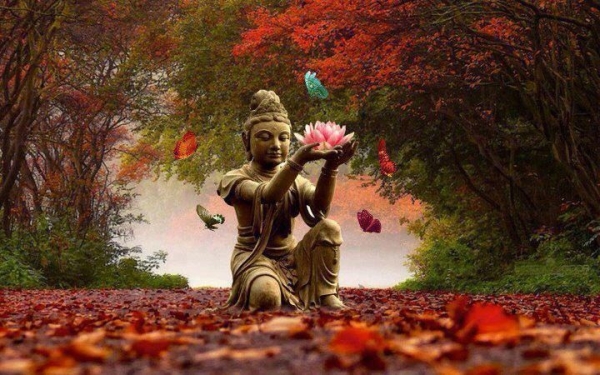By Eirini Haritou
That is a 33 year old polaroid picture of a 64 year old man and his 12 year old daughter.
The man was my father John and he was to die three years after the picture was taken.
Ηe and I were very close. He was 52 when I was born and he could easily pass for my grandfather. I was a kind of an “accident” in lovemaking. My four other siblings were already teenagers or preteens and my parents thought their family was complete.
They were poor, working class people and they both worked two jobs each to take care of their big family and give to all of their children a good education that their own parents hadn’t been able to afford for them.
When my mother found out she was pregnant, she announced to my father she’d be getting an abortion. I was told that he begged her to reconsider, using all the tender words he could master to change her mind, but she was unmovable.
”I cant, no money, I’m too tired, too old (she was 40), I work too hard to have yet another kid.”
So he gave in, because he was extremely fond of her and he always respected her wishes.
She was given an abortive injection—twice!—but with no success. Although she bled lightly, the stubborn fetus (me) hung on to life in her womb. So she was scheduled for a more aggressive procedure to terminate her pregnancy.
On the actual day of the scheduled termination my oldest brother, a 16 year old boy who was one of the kindest and most loving kids a mother could have, had a tragic accident with his bike. He died a very agonising death in my father’s arms in an ambulance, as he was being transferred to a nearby town, because of internal brain bleeding.
My father never ever talked about it.
My mother decided to keep me, thinking her son’s death was a punishment from God for wanting to have the abortion. She buried herself in grief and wore black for almost 10 years in mourning.
As a child, almost daily I would often come home and find my mum crying over my brother’s photo, look at her and feel immensely guilty. Guilty for taking his place—the place of a brother who was obviously her favorite when I wasn’t—guilty for being a “difficult, quiet, opinionated, reserved” child myself. I truly internalised that I was her punishment from God.
And I hated her for that.
I hated how she resented me, how she would never ever hug me or kiss me or be tender with me. How she wore black that made her look old and haggard and miserable.
She loved me. I now know how much she did love me, but her pain and guilt wouldn’t allow any of it to surface, except by acts of caring and overprotection towards me. It took me decades of soul searching and having my own kids to forgive her and realise what she’d been through, for her to go through a pregnancy after such a tragic loss and how that changed her.
But my father, was a different matter. He clearly showed to me and to the world how he loved me. I was always perched up on his knee when very young and since he became a pensioner he’d take me with him everywhere.
I was the apple of his eye. He was infinitely fond and proud of me—proud of how cute a little girl I was and how smart. I could read and write when I was three and was thought of as a precautions child—and how wittily I could outsmart any adult in any kind of conversation. His love, and the love of my sister who practically raised me because my mother worked all day long, nourished my soul and made me more fond of adults than kids my own age.
On the day the picture was taken he took me for a very long hike in the nearby fields to pick flowers, as was customary on the 1st day of May. On our way there we stopped by at an old woman’s house, as we did every year on that day. He called her his second mum because she was a lady that nursed him to life when his own mother had a very hard labor of twins. His other twin died and could not nurse him.
”I owe her my life, ” he’d say, 63 years after this happened. ”Always be grateful to those you owe gratitute to, Eirini. This way you’ll add more good things to your life.” Then he would take me to listen to the nightingales.
Nightingales choose shady places with lots of water, and they love an audience, contrary to what people think.
”Listen to them, Eirini,” he told me. ”They are not like other birds, they don’t chirp the same old tune over and over again. Their repertoire constantly changes. Listen…” And I would listen to this little bird singing blissfully, hidden in the folliage, and when he was done chirping my father would call out to him ”A different tune!” and the bird would oblige. In fact, it seemed to be expecting his calling to resume singing!
”All singers enjoy a good audience,” he would say, being a canon in church himself and with a masculine, mellow voice I found as sweet as the nightingale’s.
The year that pic was taken was the last one we went flower picking. He had a stroke the next year. His death was the first tragedy of my young life.
First it devastated me. Then it taught me to be strong. Then it taught me to be spiritual.
Then it taught me to deeply appreciate the people I have in my life right now, knowing only too well I could all too easily lose them.
A few days ago I met this old lady whose husband was a close friend of my father’s. ”You will never know how much he loved you, your father, ” she told me. ”He said ‘that girl gave me back my life after our son died.'”
I miss him. Always have, always will. I miss his kindness and his unconditional love. And I realise, at the same time, how lucky I was to have such a loving father, a masculine figure, a paragon of a father really, that made me love, trust and appreciate men the way it is supposed to happen; the way God intended it to be between a father and a daughter.
The way we were loved during our early childhood is the way we will tend to believe true love actually is.
Love you, father John.
I hope you are proud of the kind of woman I’ve turned into.
In deep gratitude
Eirini
Eirini Haritou was born and raised in a small town in the north of Greece. Thought of as a precocious child, she spent most of her childhood climbing trees, saving stray cats from the streets, reading everything that could fall into her hands and filling notebooks upon notebooks of short stories set in an imaginary world of her own making. She received a degree from Aristotle Univesity of Thessaloniki, got married to the love of her life, had four kids and a successful business. When she hit 40, she first lost the business to bancruptcy and economic crisis. Then she lost the husband and (almost) her kid’s love. She battled depressed, accumulated considerable debt and locked herself in her home. Then, out of sheer good luck—and maybe with the help of a wonderful new person in her life—she snapped out of it all and got her life back, wrote a book and sold it on Amazon. She got back in shape and started having fun again. Today she still lives in her ghometown with her two youngest sons (oldest two are in college), a dog named Fido, a bunny named Kimi-Teddy and a kitten named Bastet.
Photo: author’s own
Editor: Dana Gornall
Comments
- Zen Buddhism and the Blues - April 5, 2024
- Escaping from Jehovah’s Witnesses through a Buddhist Path - March 24, 2024
- Getting to Know Holly Herring - February 29, 2024





